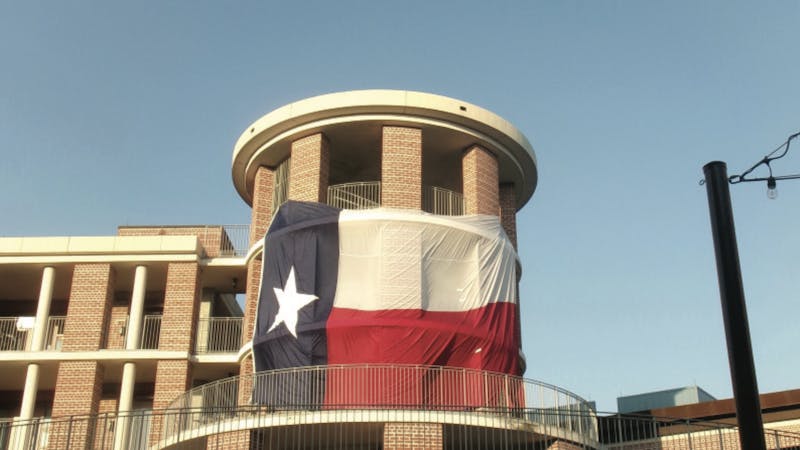On the electron superhighway
Forget cars racing along highways and start thinking electrons. Physics professor Rui-Rui Du and fourth year physics graduate student Ivan Knez have created and recently published on a topological insulator, described as an "electron superhighway". Their research is paving the way to the creation of topological insulator superconductor junctions and, eventually, quantum computers.
A topological insulator describes a bulk material that does not directly pass current through it, according to Du. Instead, the current flows around the edge of the material. As a result, the current does not experience resistivity, power does not dissipate in the process, and no heat is generated.
The comparison of a topological insulator to an electron superhighway derives from the capacity of topological insulators to carry a current without requiring power to overcome resistance in the path of the current.
"It's like driving a car but without using any gas," Du said. "It sounds strange, but it's possible based on quantum mechanics."
Du and Knez worked with Gerry Sullivan from the commercial lab Teledyne Scientific and Imaging who provided them with material they used to make nano-scale devices displaying properties of topological insulators. Du said the bulk material used to create the "highway" consisted of indium arsenide (InAs) and gallium antimonide (GaSb).
Du, who joined the Rice faculty in 2004, said he and Knez began to work on this project after Knez joined Rice as a graduate student in 2008. They spent a year researching and understanding the basis for their project, and the next two years were spent making and refining the devices. They have since been able to create the topological insulators and show that no power is dissipated when running a current through the insulators.
Du said the devices could be used to create new computers that are more efficient than classic technology that depends on the binary system. While the binary system depends on data storage using either zero or one, the quantum system simultaneously uses zero and one. A 10-digit binary code gives one of 1,024 possibilities at one time. A 10-digit quantum system could have all 1,024 possibilities simultaneously.
By putting together topological insulators and superconductors, Du and Knez hope to develop quantum bits, or qubits (CU-bits), that can be used to encode quantum information.
"Specifically, we hope that combining this material with superconductors – materials which conduct electricity without resistance – can serve as a basis of a robust quantum bit, so that encoded information is well protected and is not lost over time," Knez said. "This is an ongoing effort, not only here at Rice, but also across the globe."
Currently, Du and Knez are working on topological insulator superconductor junctions. Du said it is difficult to make progress in the field of quantum mechanics, and it can be easy to simplify achievements and underestimate how much must be accomplished in the lab in order to reach a goal.
"We are experimentalists," Du said. "Theoretically, this has already been predicted. For experimentalists, we have to prove it in the lab. This is very exciting, but we'll have to make many steps toward quantum computing. We have taken a solid step toward that."
More from The Rice Thresher
Rice lands high on Niche, Forbes college ranking lists
Rice recently ranked No. 10 on Niche’s Best Colleges in America list and No. 12 on Forbes’ annual America’s Top Colleges list in 2026. It was also recognized in several categories by the Princeton Review, placing in the top 10 in four categories.
From post-human novels to augmented reality, Rice hires new faculty
Rice welcomed 97 new professors this fall across disciplines, including a posthumanist Harvard scholar, a husband-wife duo and a computer science professor who graduated from Rice thrice.

First public of the year reckons with threats of a dry campus
After a Dis-O that saw four times as many calls for intoxication-related transports of students to the hospital compared to the prior three years, Cory Voskanian, a Martel College socials head tasked with planning the first public of the year, said that he was feeling the pressure.


Please note All comments are eligible for publication by The Rice Thresher.